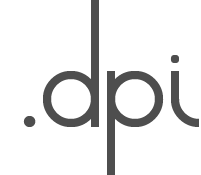By .dpi on Monday, April 7, 2014 - 17:40
Man up! Owning and Pwning the Policing of Gender Online
Guest Editor: Dr Kate Milberry
Deadline: Friday, 2 May 2014
With the rise of the Information Age and spread of Internet connectivity, some feminists predicted the end of gender-based inequality online. They envisioned a new - if virtual - era in which the gender barrier could be breached and more egalitarian social relations could be forged. The possibility of a “new body ontology” - a posthuman virtual body - suggested an escape from the limitations of the material body (Conrad 2009), a potential means of liberation from patriarchy, misogyny and other oppressive ideologies.
The possibility of another, better (cyber)world faded as “traditional” values, norms and behaviours colonized cyberspace. The democratic potential of the Internet seemed lost in the bits and bytes of male-created pornography, targeted marketing and other predatory processes. Perhaps unsurprisingly, cyberspace emerged as a gendered terrain where dominant social norms and societal inequities were reproduced. Nowhere is this more evident than in the policing of women (and girls) online. The surveillant eye of capitalist patriarchy relocated and readjusted itself to the digital sphere, manifesting in gendered forms of social control, particularly through cyber-surveillance and cyber-intimidation (bullying, stalking, predation, etc.).
Despite a dearth of feminist critique in the field of surveillance studies (Ball, Green and Phillips 2009) and sensationalist coverage of cyber-surveillance in the corporate mainstream media, issues of gender and sexuality have not escaped the surveillant gaze of the corporate-state nexus. The Internet, clearly, has been a great boon to the surveillance apparatus, which has gendered implications. Nevertheless, cyberspace remains a contested terrain, technologically in flux, with fissures and lines of flight that erupt in resistance and protest.
The Thematic Section of issue 30 seeks to understand how the “informatization of the body” (van der Ploeg 2003) - once hailed as liberatory - became the life’s blood of ever nuanced forms of cyber-surveillance that target difference and produce new vulnerabilities for women, girls and transgender and genderqueer people online. What are the sexed and gendered elements of digitally mediated surveillance - and how do they manifest as a means of social control? How can a feminist and anti-capitalist critique of the Internet enclosure movement contribute to a freer, more egalitarian society - both online and off? Can explicitly feminist analyses challenge the surveillance state and the surveillance industry? What modes of resistance are available? And can we reclaim the Internet as a space and tool for liberation?
Submissions may consider:
- the policing of women’s, queer and transgender bodies, e.g. through behavioural marketing, slut shaming and revenge porn websites, massively multiplayer online games and other interactive gaming websites;
- the regulation of sexualities - including non-normative sexual behaviours - online;
- cyber-bullying on social networking services, Internet discussion forums and online games;
- the impact of the NSA revelations for a feminist analysis of surveillance;
- feminist critiques of networked resistance/protest movements against the enclosure of the Internet;
- the gender imbalance in contributions to collaborative online projects, like Wikipedia;
- feminist critiques of regulatory and legislative efforts promoting online surveillance, e.g. the USA PATRIOT ACT and Foreign Intelligence Surveillance Act (FISA) or Canada’s recently introduced Protecting Canadians from Online Crime Act or other international examples;
- the effect of essentialist discourses around gender and sexuality on responses and resistance to surveillant processes online.
References:
Ball, Kirstie, Green, Nicola, Koskela, Hille and Phillips, David J. 2009. “Surveillance Studies needs Gender and Sexuality”. Surveillance and Society 6(4): 352-355.
Conrad, Kathryn. 2009. “Surveillance, Gender and the Virtual Body in the Information Age”. Surveillance and Society 6(4): 380-387.
van der Ploeg, Irma. 2003. “Biometrics and the Body as Information: Normative Issues of the Socio-technical Coding of the Body”. In David Lyon (ed.) Surveillance as Social Sorting: Privacy, Risk, and Digital Discrimination. London and New York: Routledge.
van Doorn, Niels and van Zoonen, Lisbet. 2010. “Theorizing Gender and the Internet: Past, Present and Future”. In Andrew Chadwick and Phillip N. Howard (eds.) Routledge Handbook of Internet Politics. New York: Routledge.
Biography
Dr. Kate Milberry is an instructor with the University of Alberta's Communication and Technology graduate program. Her research considers the impact of state surveillance on social movements, and how democratization of internet technology can advance progressive social change. Recent work for the Privacy Commissioner of Canada examined the privacy implications of e-government and digital identity management schemes. Dr. Milberry completed a postdoctoral fellowship at the University of Toronto's iSchool and a PhD in Communication at Simon Fraser University. She is a technology commentator for CBC radio and blogs at geeksandglobaljustice.com. She is @KateMilberry on Twitter.
To Submit
.dpi is looking for submissions relevant to (or stemming from) “the Web”, including text, image, sound, video, animation, interactive works, or others, and any combination of these, produced collaboratively or individually. Types of submissions include (but are not limited to) short essays, criticism, interviews, case studies, reviews, reports, alternative histories, statements and manifestos, creative works (or extracts), networked art practices and conversations, and other imaginative responses. The editorial committee encourages the submission of non-academic contributions (or that go beyond the academic style). Text length can vary between 500 and 1500 words (maximum), depending on the form and the media used. Articles should integrate links, images, videos, or other web-based content, as much as possible.
Please send a first draft of your submission by Friday, 2 May 2014 to: revuedpi(at)gmail.com
All submissions should include:
- a short biography (100 words) per person involved;
- an abstract (100 words);
- 3 to 5 keywords.
An honorarium is offered depending on the length and complexity of the contribution. The authors and artists are responsible for all copyright related to the submitted content.
Submissions that fall outside of the Themed Section are also welcomed and will be considered for publication in the Field Studies Section (“hors dossier”).
